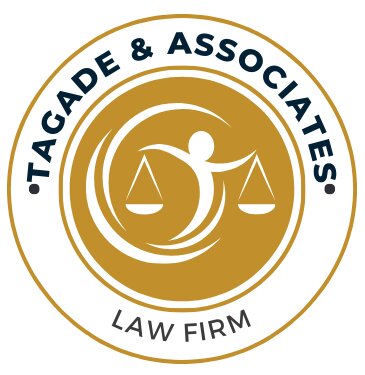Best Civil & Human Rights Lawyers in Nagpur
Share your needs with us, get contacted by law firms.
Free. Takes 2 min.
List of the best lawyers in Nagpur, India
India Civil & Human Rights Legal Articles
Browse our 1 legal article about Civil & Human Rights in India written by expert lawyers.
- Waqf Judgment by the Supreme Court of India: Explained in Simple Words
- On 15 September 2025, the Supreme Court of India delivered an important ruling on the Waqf (Amendment) Act, 2025. This law introduced major changes to how Waqf properties (religious endowments made by Muslims for charity or religious purposes) are governed in India.Several petitions had been filed in the Court, challenging... Read more →
About Civil & Human Rights Law in Nagpur, India
Civil and Human Rights law in Nagpur, as in the rest of India, plays a critical role in safeguarding the dignity, liberty, and equality of individuals. These laws are designed to protect individuals from abuses and ensure equal treatment under the law. They cover a wide range of issues including discrimination, freedom of speech, access to education and healthcare, and protection from torture and unlawful detention. The frameworks are largely drawn from the Indian Constitution, statutory provisions, and judicial precedents.
In Nagpur, efforts to uphold civil and human rights are supported by both local and national institutions, and the city's legal community is actively involved in advocating for and defending these rights.
Why You May Need a Lawyer
There are several situations where hiring a lawyer specialized in civil and human rights may become necessary:
1. **Discrimination Cases**: You might face discrimination in employment, education, or services based on religion, caste, gender, or disability.
2. **Violations of Personal Liberty**: If you've been unlawfully detained or your freedom of speech has been unjustly curtailed, legal assistance may be crucial.
3. **Property Rights Disputes**: When your rights to fair compensation or rightful ownership are in question regarding land or property.
4. **Consumer Rights Issues**: If you experience unfair practices or fraud in goods and services delivery.
5. **Access to Education and Healthcare**: When there are barriers imposed that violate your rights to basic education or medical services.
In such instances, consulting with a lawyer can help you understand your rights and the remedies available to you.
Local Laws Overview
Nagpur follows the Maharashtra State laws alongside national laws pertinent to civil and human rights. Key aspects include:
• **Right to Information Act (RTI)**: Empowers citizens to access information from the government, bolstering transparency and accountability.
• **Public Interest Litigation (PIL)**: Allows the public to file lawsuits in the case of public interest, making it a tool to enforce civil rights collectively.
• **Protection of Human Rights Act**: Provides the legal framework for the establishment of human rights institutions like the National and State Human Rights Commissions, which in Maharashtra, handle grievances related to human rights violations.
• **Maharashtra Special Security Act**: Sometimes controversial, this Act can impact civil liberties, requiring representation for those affected.
Frequently Asked Questions
What is the role of the State Human Rights Commission in Maharashtra?
The Maharashtra Human Rights Commission addresses grievances related to violation of human rights at the state level. It has the power to inquire into complaints, recommend actions, and engage in public awareness campaigns.
How can I take action against discrimination at my workplace in Nagpur?
You can file a complaint with the relevant labor commission or take legal action through the courts. Consulting a lawyer can help you gather the necessary evidence and represent your case effectively.
What is a Public Interest Litigation (PIL) and how can it be filed in Nagpur?
A PIL is a legal action initiated in a court for the protection of public interest. Any citizen can file a PIL. You can approach the High Court or the Supreme Court with the help of a lawyer for issues that affect the public at large.
Are there any NGOs in Nagpur that help with human rights issues?
Yes, several NGOs in Nagpur focus on human rights, including those specializing in labor rights, women’s rights, and education. They often provide legal aid and advocacy support.
What should I do if the police violate my rights in Nagpur?
You can lodge a complaint with the Maharashtra State Human Rights Commission, and it may also be advisable to consult a lawyer to discuss filing a legal action.
How do I report child rights violations in Nagpur?
Contact the Commission for Protection of Child Rights or local NGOs working on child rights. Legal assistance may also be sought for further action.
Can I request government-held information if it affects my rights?
Yes, under the Right to Information Act, you can request information from a public authority to understand and enforce your rights.
Is legal aid available for civil rights cases in Nagpur?
Legal aid services are available for those unable to afford a lawyer. You can approach the District Legal Services Authority for assistance.
How are digital privacy rights protected in India?
While India doesn't yet have a comprehensive data protection law, the Information Technology Act provides certain safeguards. You may require legal guidance on issues of digital privacy.
What is the process for lodging a complaint with the human rights commission?
Complaints can be filed online, through mail, or in person at the commission's office. Detailed information and forms are typically available on the commission's official website.
Additional Resources
For further assistance, consider reaching out to the following resources:
• **Maharashtra State Human Rights Commission**: Handles grievances on human rights within the state.
• **District Legal Services Authority, Nagpur**: Provides free legal aid to those in need.
• **Empowered Women’s Organization**: Offers support and advocacy for women's rights.
• **National Human Rights Commission**: Offers a broader framework for rights protection across India.
• **Local NGOs such as Childline**: Provide support and advocacy, particularly focused on child rights.
Next Steps
If you believe you need legal assistance in the realm of civil and human rights in Nagpur:
1. **Identify Your Issue**: Clearly define the problem and gather any necessary documentation.
2. **Consult a Lawyer**: Reaching out to a lawyer with expertise in civil and human rights is advisable. You can obtain referrals from legal aid services or professional legal associations.
3. **Seek Initial Advice and Guidance**: Many lawyers offer initial consultations to assess your case.
4. **File a Complaint or Petition, if necessary**: With your lawyer’s help, you can file a complaint with the appropriate body, be it a court or the Human Rights Commission.
5. **Pursue Alternative Dispute Resolution (ADR)**: In some cases, mediation or arbitration can offer a more flexible resolution path.
Take proactive steps to protect and enforce your rights, ensuring you receive due process and fair treatment under the law.
Lawzana helps you find the best lawyers and law firms in Nagpur through a curated and pre-screened list of qualified legal professionals. Our platform offers rankings and detailed profiles of attorneys and law firms, allowing you to compare based on practice areas, including Civil & Human Rights, experience, and client feedback.
Each profile includes a description of the firm's areas of practice, client reviews, team members and partners, year of establishment, spoken languages, office locations, contact information, social media presence, and any published articles or resources. Most firms on our platform speak English and are experienced in both local and international legal matters.
Get a quote from top-rated law firms in Nagpur, India — quickly, securely, and without unnecessary hassle.
Disclaimer:
The information provided on this page is for general informational purposes only and does not constitute legal advice. While we strive to ensure the accuracy and relevance of the content, legal information may change over time, and interpretations of the law can vary. You should always consult with a qualified legal professional for advice specific to your situation.
We disclaim all liability for actions taken or not taken based on the content of this page. If you believe any information is incorrect or outdated, please contact us, and we will review and update it where appropriate.
Browse civil & human rights law firms by service in Nagpur, India
Nagpur, India Attorneys in related practice areas.









